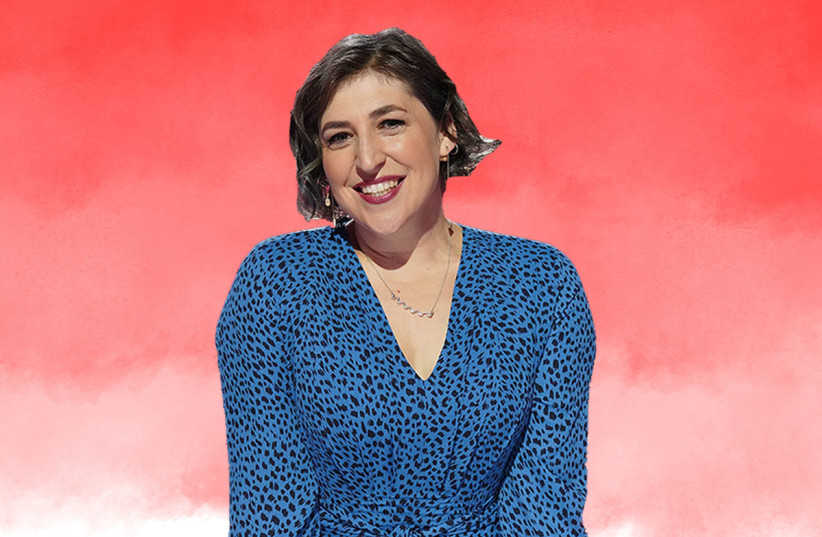If you don’t tear up at least once during As They Made Us, actress Mayim Bialik’s debut feature as a director, you should probably head to the doctor for a checkup.
The tagline of this movie, which just opened in US theaters and VOD platforms, is “If You Don’t Laugh, You’ll Cry,” and you will likely do plenty of both during this graceful film, where nearly everyone will see themselves – or at least, aspects of themselves – among the characters.
The movie tells a story of a young divorced woman, Abigail (Dianna Agron, best known for playing Quinn on Glee), who tries to hold her dysfunctional family together as her father suffers a health crisis.
Her parents have always been a handful. Her father, Eugene (Dustin Hoffman), is sometimes endearingly affectionate and funny, but at other times is filled with anger and lashes out, while her mother, Barbara (Candice Bergen), is a drama queen who manages to make any difficult situation worse.
Abigail juggles raising her two young sons and her career as a journalist with caring for her parents, who have become even needier than usual since her father’s degenerative disease has taken a turn for the worse.

Later, we learn that her father was diagnosed as bipolar, while her mother likely has a borderline personality disorder. Abigail can barely get through a tense conversation with her ex-husband or anything else she tries to do without her mother calling her to help fix some problem at their house.
The movie opens with a scene of Abigail as a child (Anastasia Veronica Lee), turning to her brother, Nathan (Oliver Patnode), as the two sit in the back seat of a car as their parents have an ugly argument up front. Abigail, desperate to blot out the angry voices, asks him about the moon and how it seems to travel alongside the car.
That the moon can give comfort is a theme that flows through the story, and the flashback scenes capture the feelings of children who feel weighed down by their parents’ unhappiness.
Nathan is played as a young adult by Simon Helberg, whom you will recognize as Howard, Bialik’s The Big Bang Theory costar. Once he finds a girlfriend, he cuts his parents out of his life and has not seen his family in 20 years. When it is clear that Eugene is dying, he asks to see Nathan, and Abigail makes it her mission to bring the two of them together, no matter how much this complicates her life.
Unsurprisingly, megastars Hoffman and Bergen steal just about any scene they are in. Hoffman is particularly effective and utterly credible as a man whose undiagnosed mental illness drove his son away and who learned the truth about himself too late to make a meaningful change. Bergen is enjoyably annoying as a mother who would not be enjoyable to be around at all in real life.
The film mixes comedy and tragedy seamlessly, sometimes within a single scene.
Bialik reportedly based the movie in part on her own experience dealing with her father’s death several years ago.
She has long been very upfront about her own Jewish faith, and she makes it very clear that this is a Jewish family, as Abigail and the children recite Hebrew prayers before bedtime. Funeral and shiva scenes depict Jewish ritual in detail.
Before people who have decried the casting of gentiles in Jewish roles get upset over the fact that Bergen, one of the great WASP goddesses of the silver screen, is portraying a Jewish mother, they might want to note that Agron is the daughter of a convert. Perhaps the casting of Bergen can be explained as faithfulness to the lead actress’s heritage. In any case, Bergen seems perfect for the role.
THERE ARE occasional discordant notes. Jay (Justin Chu Cary), a hunky, too-good-to-be-true landscaper who is working on Abigail’s yard, is right there and ready to be her love interest. Abigail lives in a lovely home and can afford a landscaper, supporting herself by writing a column for a magazine called Modern Jew that is apparently the best-paid gig in journalism since the “Sex and the City” column that kept Carrie Bradshaw in Manolo Blahniks. Similarly, although Eugene has clearly been in no shape to work for a long time and Barbara does not seem likely to have ever held down a job, they are able to afford full-time caregivers, a luxury that is out of reach of many in the US.
In spite of these minor flaws, the movie is well paced, and you root for the characters to find the catharsis they seek.
There is emotional truth in many of the scenes, particularly those in which Eugene seeks to make peace with his family.
Whether you identify with the dutiful daughter or the son who left, you will find much to enjoy in As They Made Us.
I would have liked to have seen Bialik in front of the camera, but there is no role for her here. Maybe in the future she will go on to direct herself in another project.
